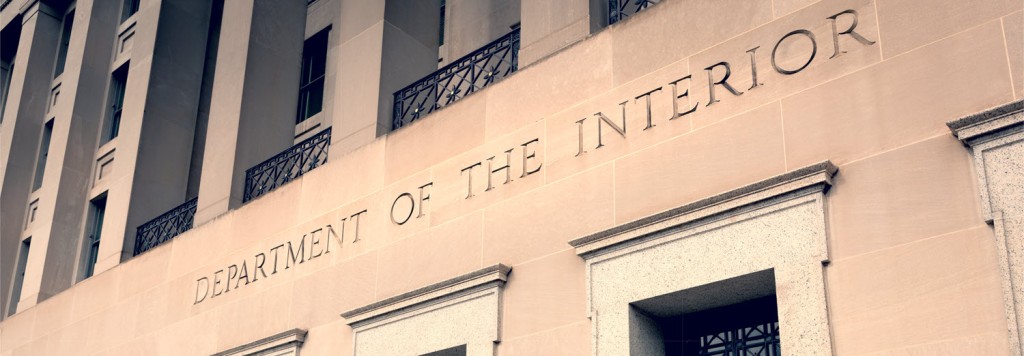
By Anna Hohag | anna.hohag@procopio.com
In the recent span of 30 days, the Department of Interior and the Biden Administration announced no less than 7 key policy proposals that can greatly benefit you to provide your Tribe’s input. The following is a brief overview of these moves, with links to the sources. Each of these items will be addressed in more detail here in the future, but for now, you have been informed!
1. Joint Secretarial Order 3403
Recognizing that the Interior and USDA will benefit by incorporating Tribal expertise and Indigenous knowledge into Federal land and resources management, the departments are urging Tribes to submit Tribal proposals and ideas on how to best manage the millions of acres of Federal lands and water that were previously owned and managed by Indian Tribes. Last November, the Interior and USDA issued Order No. 3403 a “Joint Secretarial Order on Fulfilling the Trust Responsibility to Indian Tribes in the Stewardship of Federal Lands and Waters.”
2. Tribal Treaty Database
In a collaboration between the Interior and Oklahoma State University, USDA is developing and regularly updating a tribal treaty rights database to better understand and fulfill treaty rights obligations. During the 2021 White House Tribal Nations Summit, President Biden announced that the Interior and 16 other federal agencies formally committed to protecting Tribal treaty rights in agency policymaking and regulatory processes, formalized in the “Memorandum of Understanding regarding Interagency Coordination and Collaboration for the Protection of Tribal Treaty Rights and Reserved Rights.” Tribes whose treaties contain federal promises that have gone unperformed are encouraged to contact the USDA Tribal Relations team.
3. Buy Indian Act Regulations
The BIA announced new regulations to improve implementation of the Buy Indian Act to promote economic development opportunities in Indian Country. This Act allows the Interior to set aside certain opportunities for Indian-owned and controlled businesses, and seeks to: eliminate barriers to Indian Economic Enterprises (IEEs) from competing on certain construction contracts, expand IEEs’ ability to subcontract construction work consistent with other socio-economic set-aside programs, and give greater preference to IEEs when a deviation from the Buy Indian Act is necessary. These regulations also align with the Indian Health Service providing consistency and streamlining the procurement procedures for Native-owned businesses.
4. Indian Affairs Appeals Regulations
The Interior also announced the forthcoming release of a proposed rule governing Appeals from Administrative Actions at 25 C.F.R. Part 2, to include when and how the Assistant Secretary – Indian Affairs (AS-IA) will take jurisdiction over an Interior Board of Indian Affairs (IBIA) action. Tribes should keep an eye out for these forthcoming updates.
5. Fee to Trust Regulations & Gaming Compact Regulations
On March 28, 2022 the AS-IA announced Tribal consultation sessions regarding draft amendments to the regulations governing both the fee-to-trust process and Class III gaming compacts. The proposed changes to the fee-to-trust regulations at 25 C.F.R. Part 151 are intended to clarify the Secretary’s authority to take land into trust for Tribes, reduce processing time, and establish clear decisions-making criteria, with a special focus on taking land into trust for conservation purposes. The proposed changes would build on Secretary’s Order 3400 re-delegating the authority to review and approve applications to place land into trust to the BIA regional directors. The proposed changes to the Class III gaming compact regulations at 25 C.F.R. Part 293 are intended to provide clarity on the criteria the Interior will consider when deciding whether to approve compacts by clarifying boundaries of allowable topics of negotiation, better defining key terms, and clearly outlining when the Interior must review a gaming compact.
The Department will conduct four virtual consultation sessions between May 9 and May 23 and will accept oral and written comments. Written comments should be submitted to consultation@bia.gov by 11:59 pm ET on Thursday, June 30, 2022.
6. Tribal Water Codes
On April 7, 2022 Secretary Haaland rescinded a nearly 50-year old moratorium on the federal approval of Tribal water codes, restoring Tribal authority to adopt water laws to regulate water use on their own lands. Tribes should keep an eye out for more information on upcoming Tribal consultations on this important issue!
7. Tribal Energy Development Organizations
Finally, the Interior announced its approval of the first ever Tribal Energy Development Organization (TEDO) issued to the Red Lake Band of Chippewa Indians. This makes the Tribe the first to receive such approval and will support the Tribe’s effort to develop renewable energy resources. TEDOs provide an avenue to reclaim Tribal authority by allowing Tribes to enter into and manage energy-related leases, rights-of-way and business agreements without obtaining the burdensome BIA approval for each individual lease, right-of-way, or agreement.
We encourage any Tribes, Tribal Organizations, or Native-Owned Businesses wishing to learn more about these potential opportunities to reach out to one of the many experienced attorneys in the Native American Practice Group here at Procopio. We look forward to working with you and all the potential growth for Tribes under this Indigenous-led team at the Interior and beyond!


 By: Theodore J. Griswold | Partner |
By: Theodore J. Griswold | Partner | 
 When was the last time you looked at your Tribe’s Constitution? It’s probably not an everyday occurrence, and when you do review it you might just be scanning for a specific clause. If you were to take a moment to sit back and work your way through it, however, it’s quite possible you’d come across some language that resonates as a bit tone-deaf in a 21st Century world in which Tribes rightfully resist federal paternalism. There are steps Tribes can take to remedy their own Constitutions, but first let’s look at how we found ourselves here.
When was the last time you looked at your Tribe’s Constitution? It’s probably not an everyday occurrence, and when you do review it you might just be scanning for a specific clause. If you were to take a moment to sit back and work your way through it, however, it’s quite possible you’d come across some language that resonates as a bit tone-deaf in a 21st Century world in which Tribes rightfully resist federal paternalism. There are steps Tribes can take to remedy their own Constitutions, but first let’s look at how we found ourselves here.
